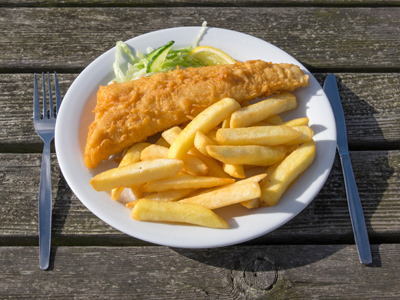
Fun And Games - 'Doubleton' Phrases
Quiz playing is a wonderful way to increase your knowledge of English as a Second Language. Remember that all of our ESL quizzes have titles that are both friendly and technical at the same time… In the case of this quiz you might like to tell your friends about “Fun and Games” but no doubt your teachers will talk about the “Doubleton Phrases quiz”! If you hear a technical term and you want to find a quiz about the subject then just look through the list of quiz titles until you find what you need.
English contains lots of 'doubleton phrases' (i.e. with two elements in them, for 'strength') - such, indeed, as 'fun and games'. How many doubleton phrases do you know?
'I must have been about eleven years old when my mother told me about the ... ... .'
'The raid on the jewellery shop was quick, and probably terrifying, but the robbers were away in barely five minutes with about £1 million-worth of goods. This was a classic ... ... .'
It is less fashionable now, but still widely-heard to describe something that is good / impressive / enjoyable etc. as 'smashing' (this does not, in fact, carry any suggestion of breaking anything ~ except, perhaps, the odd record). It would now sound rather over-the-top to describe a boiled egg as 'smashing', even though you would have had to break its top to eat what's inside.
'Grab' means more or less the same as 'snatch': to seize hold, hard and quickly, of something, often in an emergency ('She reached out and grabbed the handle'). In informal English, an office worker (for instance) with little time for lunch might 'grab a bite to eat'.
(We always felt there was a space in the market for an Italian company, selling pannini etc., to call itself 'Grabassani' [ = 'grab a sarnie', i.e. a sandwich]).
' (...) And now, ... ... , will you please welcome tonight's star performer, who is going to delight us with a selection of the ... ... of Cole Porter?'
'I wouldn't go outside today unless you absolutely have to : it's raining ... ... this morning!'
'Motorists are advised to be careful tomorrow morning, because of the localised risk of ... ... .'
'Mist' always comes first in the phrase, perhaps because it is thinner and/or comes in smaller patches.
If you don't fancy a 'sarnie' (sandwich), how about some ... ... ?
Before the days of computers, people used to write to one another proper letters using ... ... .
'There seems to have been an awful lot of ... ... about them changing the day of our dustbin collection.'
There were a large number of ... ... at Martin's retirement party.
A full athletics meeting will have a balanced programme of ... ... events.
Ready for more?
not all...
quizzers. Try to win a coveted spot on our Hall of Fame Page.







